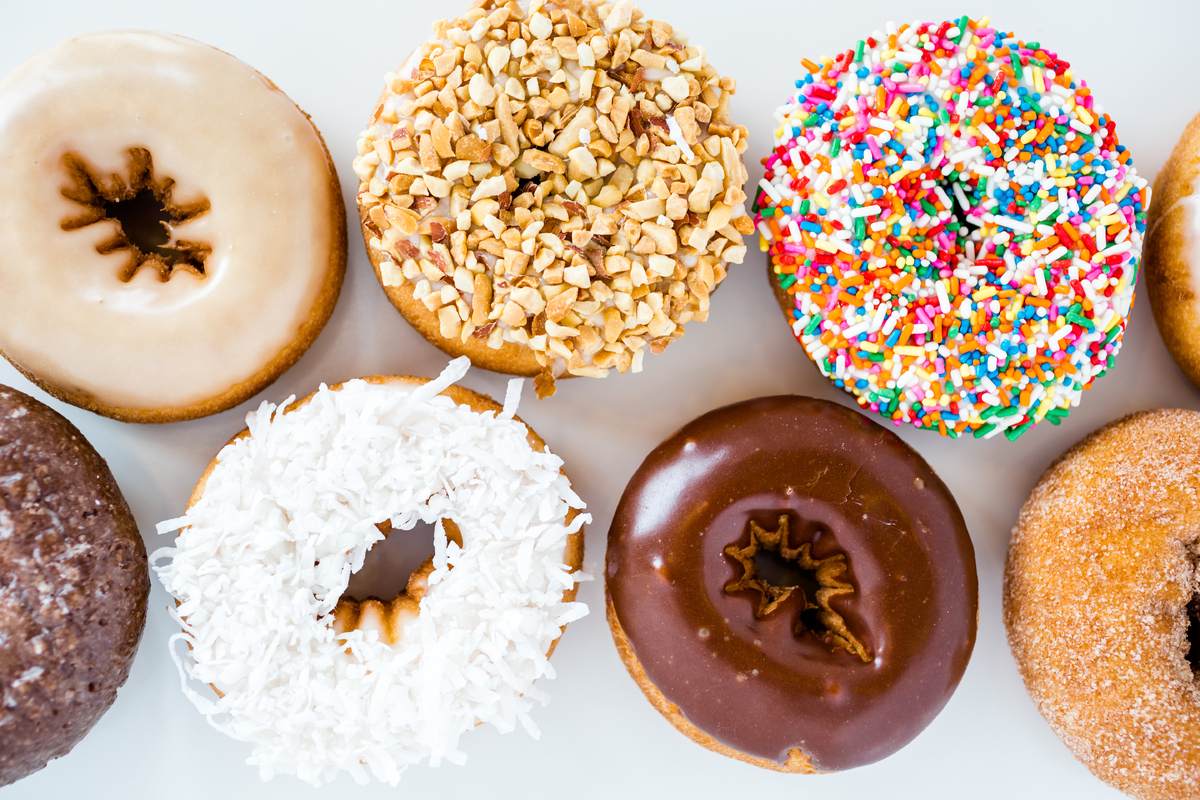Did you know: People are twice as fearful of losing their mental ability as their physical ability.
What’s that word again?
What did I come in here to do?
I know her, but can’t think of her name.
You’re not alone if you mutter one or more of these phrases on a hourly/daily/weekly basis. And by now, you might just be thinking that memory loss and age are two peas in a pod.
Well, yes. And, no.
Though some degree of memory loss is a common part of aging (back in our 30s, our brain’s weight and its network of nerves and blood flow begin to decrease), memory loss is not inevitable. The everyday choices you make can have a big influence on your brain’s ability to age well.
“Lifestyle factors can be very important at preventing cognitive decline in older people,” says Cathy Alessi, M.D., president of the American Geriatrics Society and professor at the David Geffen School of Medicine at UCLA. Dr. Alessi says that although there may be issues that are out of your control— like genetics, past head trauma, or some neurologic disorders—other things can protect your memory as you age.
Start by taking a close look at your lifestyle and everyday habits. You may, innocently enough, be sabotaging your mental sharpness without even realizing it.
-
1 Your medications Do you take some commonly prescribed and over-the-counter drugs like antihistamines and painkillers? These may interfere with your memory. Potentially most troublesome are those medications whose mechanism is to act on your brain—like antidepressants, antipsychotics, and sleep and anxiety aids, according to Dr. Alessi. Some associated memory loss may come on suddenly, but it’s usually short-term and will likely improve once you stop the medication, she says. Though some people may have no problems with these medications and their effect on memory, others—especially those people who have a pre-existing problem with cognition or early memory loss—may be more susceptible. Check in periodically with your doctor, Dr. Alessi advises, to make sure the medication is still necessary. And never stop a medication suddenly, she warns. You may need to taper off slowly to give your body a chance to adjust. On the flip side of this issue, emerging research suggests that takingcholesterol-lowering drugs (statins) may have protective effects on the mind. Dr. Alessi cautions that while research is mixed, the drugs don’t appear to be cause memory loss (as previously thought).
Do you take some commonly prescribed and over-the-counter drugs like antihistamines and painkillers? These may interfere with your memory. Potentially most troublesome are those medications whose mechanism is to act on your brain—like antidepressants, antipsychotics, and sleep and anxiety aids, according to Dr. Alessi. Some associated memory loss may come on suddenly, but it’s usually short-term and will likely improve once you stop the medication, she says. Though some people may have no problems with these medications and their effect on memory, others—especially those people who have a pre-existing problem with cognition or early memory loss—may be more susceptible. Check in periodically with your doctor, Dr. Alessi advises, to make sure the medication is still necessary. And never stop a medication suddenly, she warns. You may need to taper off slowly to give your body a chance to adjust. On the flip side of this issue, emerging research suggests that takingcholesterol-lowering drugs (statins) may have protective effects on the mind. Dr. Alessi cautions that while research is mixed, the drugs don’t appear to be cause memory loss (as previously thought). -
2 Your stress level Do you often feeling overwhelmed or anxious? When you’re stressed, it can affect your brain in the form of forgetfulness, confusion, or difficulty concentrating. And stress doesn’t just go to your brain; it can go to your belly, as well. Here’s how it happens: the body, in response to stress, releases the hormone cortisol. High levels of cortisol leads to belly fat, which can, in turn, lead to memory loss and cognitive impairment. Don’t believe it? Research proves it: Middle-aged people with high amounts of abdominal fat are 3.6 times as likely to develop memory loss and dementia later in life. Minimize your stress by exercising regularly—at least 30 minutes, 3 times a week. Exercise increases blood flow to the brain and may even help new brain cells grow. Activities like yoga, meditation, tai chi, and Qigong are effective stress reducers, too.
Do you often feeling overwhelmed or anxious? When you’re stressed, it can affect your brain in the form of forgetfulness, confusion, or difficulty concentrating. And stress doesn’t just go to your brain; it can go to your belly, as well. Here’s how it happens: the body, in response to stress, releases the hormone cortisol. High levels of cortisol leads to belly fat, which can, in turn, lead to memory loss and cognitive impairment. Don’t believe it? Research proves it: Middle-aged people with high amounts of abdominal fat are 3.6 times as likely to develop memory loss and dementia later in life. Minimize your stress by exercising regularly—at least 30 minutes, 3 times a week. Exercise increases blood flow to the brain and may even help new brain cells grow. Activities like yoga, meditation, tai chi, and Qigong are effective stress reducers, too. -
3 Your diet Does your diet contain a lot of healthy brain food? Apparently it should. Registered dietitian Samantha Heller, author of “Get Smart: Samantha Heller’s Nutrition Prescription for Boosting Brain Power and Optimizing Total Body Health,” says that eating healthier means a healthier brain. Fats: Since two-thirds of your brain is made up of fat, eating fat is one essential way for neurons to communicate with one another, Heller says. Good fats are unsaturated, liquid at room temperature and generally come from plants (with the exception of coconut, palm and palm kernel oils, which are saturated fats). They’re found in foods like fish (like especially salmon, tuna, sardines and mackerel), avocados, nuts, sunflower, flax and pumpkin seeds and tofu. Fish:Women who reported eating tuna or dark-meat fish like sardines, herring, trout or swordfish at least once a week had better verbal memory four years later than women who ate fish less than once a week. Fruits and Vegetables: These contain compounds that help reduce oxidative stress, which is implicated in the development and progression of brain aging and cognitive decline. Veggies like kale, broccoli, spinach, and cabbage helps keep a good supply of antioxidants to protect cells and support a healthy brain, says Heller. The next time you eat fruit, consider the blueberry: In a study of adults in their 70s who were experiencing early memory loss, those who drank 2 to 2 1/2 cups of wild blueberry juice each day for three months performed significantly better on memory tests compared with adults who did not consume blueberry juice. Grains: Since studies show that eating carbohydrates enhances memory, says Heller, don’t skimp—but keep ‘em whole. “Whole grains such as whole-wheat breads and pastas, quinoa, brown and wild rices, and whole grain crackers have fiber, vitamins, minerals and the carbohydrates your brain needs for fuel,” she says.
Does your diet contain a lot of healthy brain food? Apparently it should. Registered dietitian Samantha Heller, author of “Get Smart: Samantha Heller’s Nutrition Prescription for Boosting Brain Power and Optimizing Total Body Health,” says that eating healthier means a healthier brain. Fats: Since two-thirds of your brain is made up of fat, eating fat is one essential way for neurons to communicate with one another, Heller says. Good fats are unsaturated, liquid at room temperature and generally come from plants (with the exception of coconut, palm and palm kernel oils, which are saturated fats). They’re found in foods like fish (like especially salmon, tuna, sardines and mackerel), avocados, nuts, sunflower, flax and pumpkin seeds and tofu. Fish:Women who reported eating tuna or dark-meat fish like sardines, herring, trout or swordfish at least once a week had better verbal memory four years later than women who ate fish less than once a week. Fruits and Vegetables: These contain compounds that help reduce oxidative stress, which is implicated in the development and progression of brain aging and cognitive decline. Veggies like kale, broccoli, spinach, and cabbage helps keep a good supply of antioxidants to protect cells and support a healthy brain, says Heller. The next time you eat fruit, consider the blueberry: In a study of adults in their 70s who were experiencing early memory loss, those who drank 2 to 2 1/2 cups of wild blueberry juice each day for three months performed significantly better on memory tests compared with adults who did not consume blueberry juice. Grains: Since studies show that eating carbohydrates enhances memory, says Heller, don’t skimp—but keep ‘em whole. “Whole grains such as whole-wheat breads and pastas, quinoa, brown and wild rices, and whole grain crackers have fiber, vitamins, minerals and the carbohydrates your brain needs for fuel,” she says. -
4 Your sleep How’d you sleep last night? Chances are your most honest answer is “not so good.” And the sad truth is that as we age, both the quality and the quantity of our sleep deteriorate. Not only can a bad night’s sleep leave you cranky, but it can play mind games with you. Research suggests that memory consolidation, through the strengthening of the neural connections that form our memories, takes place during sleep. Without adequate sleep, it’s tough to make a memory stick so it can be recalled in the future. Still more research finds that if you’re not well rested, fatigue easily interferes with the ability to consolidate and retrieve information. Your mind may have a tough time focusing and learning when you’re weary. What to do? – Go to bed at a set time each night and get up at the same time each morning. – Try to exercise 20 to 30 minutes a day. – Avoid drinks that contain caffeine, which acts as a stimulant and can keep you awake. Sources of caffeine include coffee, sodas, chocolate, non-herbal teas, diet drugs, and some pain relievers. – If you can’t get to sleep, do something else like reading or listening to music until you feel tired. – Maintain a comfortable temperature in the bedroom. Avoid extremes; a room that is either too hot or too cold can interfere with sleep.
How’d you sleep last night? Chances are your most honest answer is “not so good.” And the sad truth is that as we age, both the quality and the quantity of our sleep deteriorate. Not only can a bad night’s sleep leave you cranky, but it can play mind games with you. Research suggests that memory consolidation, through the strengthening of the neural connections that form our memories, takes place during sleep. Without adequate sleep, it’s tough to make a memory stick so it can be recalled in the future. Still more research finds that if you’re not well rested, fatigue easily interferes with the ability to consolidate and retrieve information. Your mind may have a tough time focusing and learning when you’re weary. What to do? – Go to bed at a set time each night and get up at the same time each morning. – Try to exercise 20 to 30 minutes a day. – Avoid drinks that contain caffeine, which acts as a stimulant and can keep you awake. Sources of caffeine include coffee, sodas, chocolate, non-herbal teas, diet drugs, and some pain relievers. – If you can’t get to sleep, do something else like reading or listening to music until you feel tired. – Maintain a comfortable temperature in the bedroom. Avoid extremes; a room that is either too hot or too cold can interfere with sleep. -
5 Your activity level Do you lead a sedentary lifestyle? While exercise is good for the health of your body, it is also good for brain health. And it may be one of the best and cheapest therapies to help your memory perform better. As we age, our brains shrink, leading to impaired memory. Regular exercise, Heller says, helps keep our brains fat and boosts memory in people of all ages. Research bears this out: Aerobic exercise training is shown to increase the size of the hippocampus, leading to improvements in memory. Scientists who studied older adults found that aerobic exercise training reversed age-related memory loss by one to two years. It doesn’t take much, either: Some experts suggest doing 30 minutes of moderately intense exercise, five days a week. Brisk walking, swimming, and anything else that gets your heart pumping – including yard or housework—qualify. Others say that just walking for 40 minutes three times a week shows increases in the size of the hippocampus and improvement in memory after just one year, even in people who were previously couch potatoes.
Do you lead a sedentary lifestyle? While exercise is good for the health of your body, it is also good for brain health. And it may be one of the best and cheapest therapies to help your memory perform better. As we age, our brains shrink, leading to impaired memory. Regular exercise, Heller says, helps keep our brains fat and boosts memory in people of all ages. Research bears this out: Aerobic exercise training is shown to increase the size of the hippocampus, leading to improvements in memory. Scientists who studied older adults found that aerobic exercise training reversed age-related memory loss by one to two years. It doesn’t take much, either: Some experts suggest doing 30 minutes of moderately intense exercise, five days a week. Brisk walking, swimming, and anything else that gets your heart pumping – including yard or housework—qualify. Others say that just walking for 40 minutes three times a week shows increases in the size of the hippocampus and improvement in memory after just one year, even in people who were previously couch potatoes.





